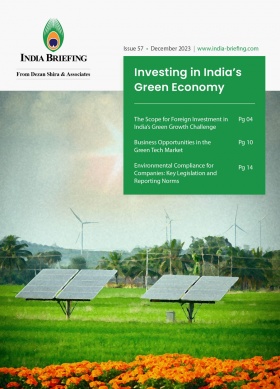India to Push for Social Security Agreement with the US at Trade Policy Forum Meeting
India has supplied comprehensive data on its social security programs to the United States, marking a significant step towards initiating negotiations on a bilateral totalization agreement. This agreement aims to exempt short-term visa holders from mandatory contributions to social security. India is expected to put it on the agenda at the India-US Trade Policy Forum (TPF) meeting scheduled for Friday, January 12.
Also, on India’s priorities for discussion, there is a focus on facilitating easier business visas from the US.
In view of intensified economic relations between India and the US, it is important for both sides to make provisions that reduce extra costs towards double insurance liability. Therefore, negotiators, particularly on the Indian side, are pushing for the interests of investing companies and their employees.
READ: Outcomes of Prime Minister Narendra Modi’s Official Visit to the US in June 2023
Why it matters: Avoidance of double social security payments by temporary workers
The United States had reportedly set the condition of receiving detailed information on India’s social security schemes before agreeing to commence negotiations on the totalization or social security agreement (SSA). India, with the assistance of the Ministry of Labour, has successfully submitted the required data, encompassing schemes such as the Employees’ Provident Fund, National Pension System, and ESIC.
During the India-US TPF meeting, India will advocate for the initiation of negotiations on the totalization agreement. The primary objective of such an agreement is to ensure that short-term workers from India in the United States, and vice versa, are not compelled to contribute double amounts to social security.
An official further highlighted that discussions may involve considerations for a total exemption or the possibility of refunding contributions.
India is actively engaging in negotiations for social security agreements with the United States and the United Kingdom, aiming to prevent the duplication of social security schemes.
The implementation of SSAs with these countries would alleviate employers from the burden of making dual social security contributions for the same group of employees posted in other countries. Additionally, employees would be spared from making redundant social security contributions.
To illustrate, consider the bilateral social security agreement between India and Germany, which came into effect on October 1, 2009. This agreement safeguards the interests of professionals deployed by Indian-based companies to their German subsidiaries or vice versa—individuals sent by German companies to India-based branches under short-term contracts (initially up to 48 months, with the possibility of a 12-month extension). Under this arrangement, these professionals are granted exemption from social security contributions in their host country. While fulfilling their assignments abroad, they are solely subject to the social security regulations of their home country. Consequently, this agreement relieves professionals working in foreign countries from the obligation to participate in the pension system of the host country.
READ: Key Considerations for Expatriates in India: Jobs, Location Costs, and Tax
India’s social security agreements in place
India has successfully signed SSAs with various countries, including Belgium, Germany, Switzerland, Luxembourg, France, Denmark, S.Korea, the Netherlands, Hungary, Finland, Sweden, Czech Republic, Norway, Austria, Canada, Australia, Japan, and Portugal. As a result, Indian individuals working abroad are not obligated to contribute to social security schemes in SSA countries. They, along with their employers, can continue participating in the social security schemes administered by the Employees’ Provident Fund Organisation (EPFO) in India while serving abroad. Notably, India has also entered into Migration and Mobility Partnership Agreements with six countries within the Gulf Cooperation Council.
Other agendas at the India-US Trade Policy Forum meeting
Aside from the social security agreement, India is anticipated to address various issues during the TPF, co-chaired by Commerce & Industry Minister Piyush Goyal and US Trade Representative Katherine Tai. These issues include addressing delays in the issuance of business visas, tackling non-tariff barriers affecting items such as table grapes, mangoes, marine products, and pharmaceuticals.
Additionally, India will advocate for the restoration of benefits for exporters under the Generalized System of Preferences scheme and address concerns related to the imposition of anti-subsidy duties on select Indian exports.
In the first seven months of FY24 (April-October 2023), the United States was India’s top export destination, receiving US$44.47 billion in exports, while imports from the US during the same period amounted to US$24.88 billion.
About Us
India Briefing is produced by Dezan Shira & Associates. The firm assists foreign investors throughout Asia from offices across the world, including in Delhi and Mumbai. Readers may write to india@dezshira.com for more support on doing business in India.
We also maintain offices or have alliance partners assisting foreign investors in Indonesia, Singapore, Vietnam, Philippines, Malaysia, Thailand, Italy, Germany, and the United States, in addition to practices in Bangladesh and Russia.
- Previous Article Investment Spotlight on Western India: Gujarat vs Maharashtra
- Next Article Mumbai Trans Harbour Link Inaugurated: Key Insights into India’s Longest Sea Bridge









